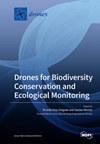Unmanned Aerial Vehicle 3D Path Planning Based on an Improved Artificial Fish Swarm Algorithm
IF 4.4
2区 地球科学
Q1 REMOTE SENSING
引用次数: 0
Abstract
A well-organized path can assist unmanned aerial vehicles (UAVs) in performing tasks efficiently. The artificial fish swarm algorithm (AFSA) is a widely used intelligent optimization algorithm. However, the traditional AFSA exhibits issues of non-uniform population distribution and susceptibility to local optimization. Despite the numerous AFSA variants introduced in recent years, many of them still grapple with challenges like slow convergence rates. To tackle the UAV path planning problem more effectively, we present an improved AFSA algorithm (IAFSA), which is primarily rooted in the following considerations: (1) The prevailing AFSA variants have not entirely resolved concerns related to population distribution disparities and a predisposition for local optimization. (2) Recognizing the specific demands of the UAV path planning problem, an algorithm that can combine global search capabilities with swift convergence becomes imperative. To evaluate the performance of IAFSA, it was tested on 10 constrained benchmark functions from CEC2020; the effectiveness of the proposed strategy is verified on the UAV 3D path planning problem; and comparative algorithmic experiments of IAFSA are conducted in different maps. The results of the comparison experiments show that IAFSA has high global convergence ability and speed.基于改进人工鱼群算法的无人机三维路径规划
一个组织良好的路径可以帮助无人机高效地执行任务。人工鱼群算法(artificial fish swarm algorithm, AFSA)是一种应用广泛的智能优化算法。然而,传统的AFSA存在种群分布不均匀和易受局部优化影响的问题。尽管近年来推出了许多AFSA变体,但其中许多仍然面临着缓慢的收敛速度等挑战。为了更有效地解决无人机路径规划问题,我们提出了一种改进的AFSA算法(IAFSA),该算法主要基于以下考虑:(1)目前流行的AFSA变体并没有完全解决与种群分布差异和局部优化倾向相关的问题。(2)针对无人机路径规划问题的具体需求,提出一种既具有全局搜索能力又具有快速收敛性的算法。为了评估IAFSA的性能,在CEC2020的10个约束基准函数上进行了测试;在无人机三维路径规划问题上验证了所提策略的有效性;并在不同的地图上进行了IAFSA算法对比实验。对比实验结果表明,IAFSA具有较高的全局收敛能力和速度。
本文章由计算机程序翻译,如有差异,请以英文原文为准。
求助全文
约1分钟内获得全文
求助全文

 求助内容:
求助内容: 应助结果提醒方式:
应助结果提醒方式:


